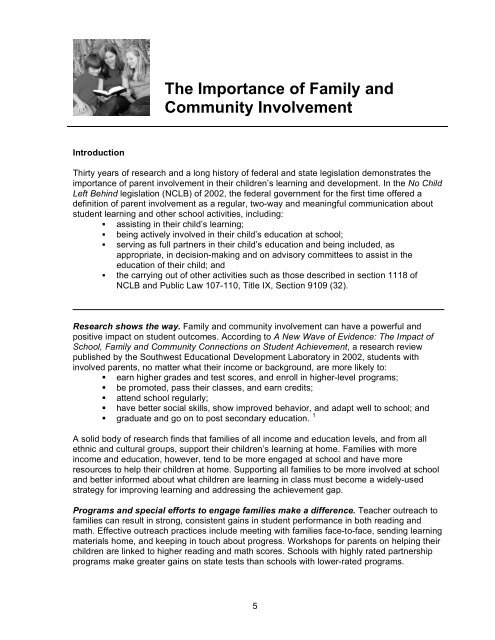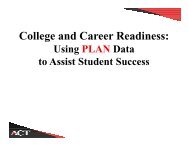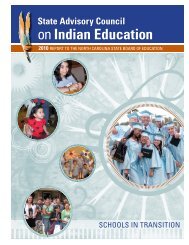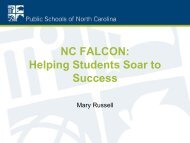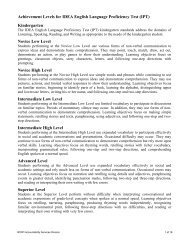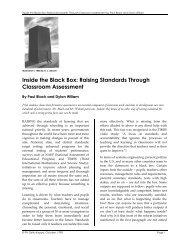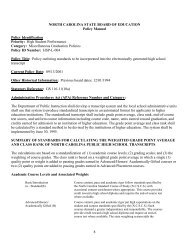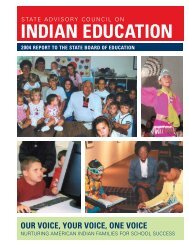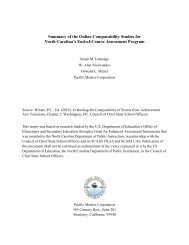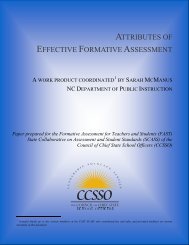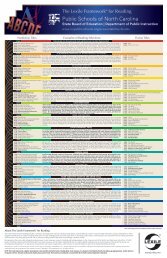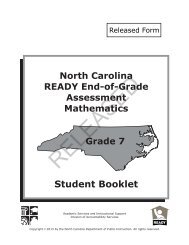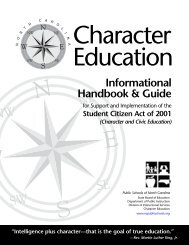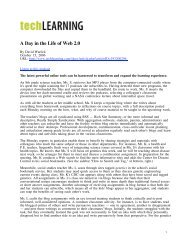Parent and Family Involvement - Public Schools of North Carolina
Parent and Family Involvement - Public Schools of North Carolina
Parent and Family Involvement - Public Schools of North Carolina
You also want an ePaper? Increase the reach of your titles
YUMPU automatically turns print PDFs into web optimized ePapers that Google loves.
The Importance <strong>of</strong> <strong>Family</strong> <strong>and</strong><br />
Community <strong>Involvement</strong><br />
Introduction<br />
Thirty years <strong>of</strong> research <strong>and</strong> a long history <strong>of</strong> federal <strong>and</strong> state legislation demonstrates the<br />
importance <strong>of</strong> parent involvement in their children’s learning <strong>and</strong> development. In the No Child<br />
Left Behind legislation (NCLB) <strong>of</strong> 2002, the federal government for the first time <strong>of</strong>fered a<br />
definition <strong>of</strong> parent involvement as a regular, two-way <strong>and</strong> meaningful communication about<br />
student learning <strong>and</strong> other school activities, including:<br />
assisting in their child’s learning;<br />
<br />
<br />
<br />
being actively involved in their child’s education at school;<br />
serving as full partners in their child’s education <strong>and</strong> being included, as<br />
appropriate, in decision-making <strong>and</strong> on advisory committees to assist in the<br />
education <strong>of</strong> their child; <strong>and</strong><br />
the carrying out <strong>of</strong> other activities such as those described in section 1118 <strong>of</strong><br />
NCLB <strong>and</strong> <strong>Public</strong> Law 107-110, Title IX, Section 9109 (32).<br />
Research shows the way. <strong>Family</strong> <strong>and</strong> community involvement can have a powerful <strong>and</strong><br />
positive impact on student outcomes. According to A New Wave <strong>of</strong> Evidence: The Impact <strong>of</strong><br />
School, <strong>Family</strong> <strong>and</strong> Community Connections on Student Achievement, a research review<br />
published by the Southwest Educational Development Laboratory in 2002, students with<br />
involved parents, no matter what their income or background, are more likely to:<br />
earn higher grades <strong>and</strong> test scores, <strong>and</strong> enroll in higher-level programs;<br />
be promoted, pass their classes, <strong>and</strong> earn credits;<br />
attend school regularly;<br />
have better social skills, show improved behavior, <strong>and</strong> adapt well to school; <strong>and</strong><br />
graduate <strong>and</strong> go on to post secondary education. 1<br />
A solid body <strong>of</strong> research finds that families <strong>of</strong> all income <strong>and</strong> education levels, <strong>and</strong> from all<br />
ethnic <strong>and</strong> cultural groups, support their children’s learning at home. Families with more<br />
income <strong>and</strong> education, however, tend to be more engaged at school <strong>and</strong> have more<br />
resources to help their children at home. Supporting all families to be more involved at school<br />
<strong>and</strong> better informed about what children are learning in class must become a widely-used<br />
strategy for improving learning <strong>and</strong> addressing the achievement gap.<br />
Programs <strong>and</strong> special efforts to engage families make a difference. Teacher outreach to<br />
families can result in strong, consistent gains in student performance in both reading <strong>and</strong><br />
math. Effective outreach practices include meeting with families face-to-face, sending learning<br />
materials home, <strong>and</strong> keeping in touch about progress. Workshops for parents on helping their<br />
children are linked to higher reading <strong>and</strong> math scores. <strong>Schools</strong> with highly rated partnership<br />
programs make greater gains on state tests than schools with lower-rated programs.<br />
5


